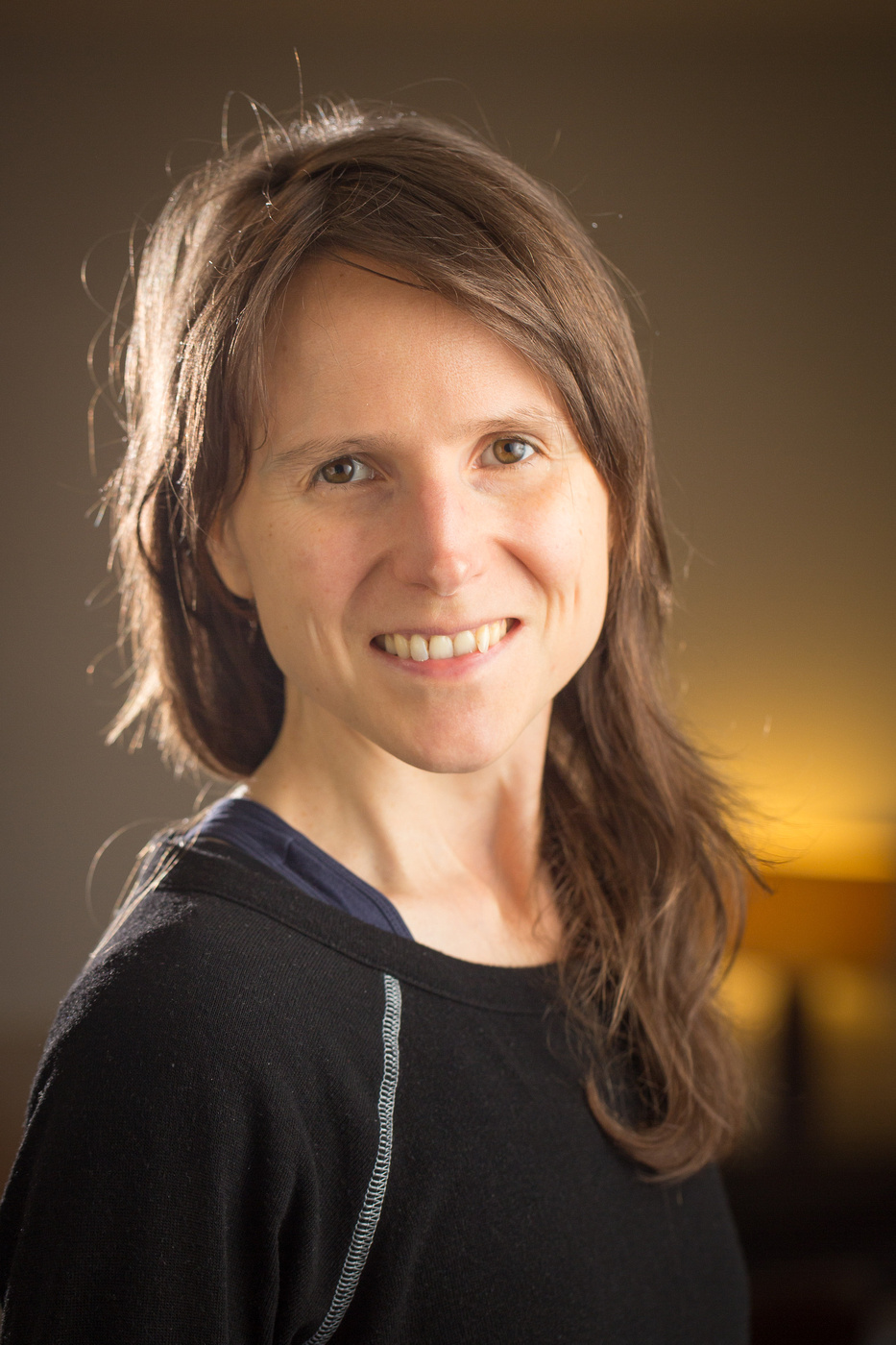Dr Sarah Pogoda
Senior Lecturer in German Studies

Affiliations
Links
- https://bellotograph.jimdo.com/
This is a website which documents one of my past projects at Sheffield. It included a Happening, a Panel debate with artists and academics and a workshop with artists and the public. The project dealt with commemoration practices for World War II in both, Germany and the UK. - https://lighthousesintofuturity.jimdofree.com/
This website documents my artistic research project on German writer and filmmaker Alexander Kluge. An exhibition (August 2018) in Pontio, Bangor introduced his work to a Welsh audience for the first time.
Contact info
Originally from the Bergische Land (Nordrhein-Westfalen), I studied German literature, history and communication at the Freie Universität Berlin. As part of my undergraduate programme I went on an Erasmus exchange to the University of Vienna. After my Magister Artium I completed a doctorate in German literature. Having worked as a tutor for GfL (German as a Foreign Language) in the private sector in Berlin, I went to the University of Sheffield as DAAD-Lektorin in 2012. In autumn 2016 I came to Bangor University.
Teaching
At the Freie Universität Berlin and the Humboldt Universität zu Berlin I offered several modules on Political Studies and German Literature of the 20th century. As a DAAD-Lektor at the University of Sheffield (2012-2016) I taught modules on contemporary German culture and media, post-wall German art, film and performance, as well as modules on contemporary German literature. Alongside this research led teaching, I have been teaching German language at all levels (ab initio to near native competence) since 2011. At Bangor University I continue teaching German language at all levels, as well as undergraduate and postgraduate teaching in my field of research expertise, this includes e.g. the modules "Culture in Context" (LXE 1600); "The German Film" (LXG 2008), "Performing Germany" (LXG 3036), "German Avant-Garde" (LXM 4037) and "Critical Theory" (LXM 4001).
In my teaching, I prefer to integrate artistic practices, such as Happenings and Creative Writing exercises. I was nominated for the Special Recognition Award.
Research
My current research interests are 20th and 21st century Avant Garde, with a focus on performance. Here, my core research considers the German film maker, theatre director and actionist artist Christoph Schlingensief (1960-2010).
I critically re-read hegemonic theories of the Avant Garde to make them receptive for contemporary process-oriented art practices as investigations into political, social, and ecological dynamics of our contemporary world. Interdisciplinary collaboration and a co-creative methodology enables me to find a new language for a concise understanding of the dynamics unleashed by the various localised forms of artistic engagements we find today, often stemming from or referring to (trans)national Avant Garde(s).
Since 2020, I mostly pursue collaborative and co-created research with artist communities in Wales and beyond. I have a particularly interest in Welsh artist Paul Davies (1949-1993), founding member of pivotal art group Becca ("Welsh Not" at 1977 National Eisteddfod in Wrexham) and a core agent of the less visible tradition of socially-engaged art in Wales. Thanks to Paul Davies' family gift to Bangor University archive, an AHRC funded CDP PhD is now able to look into a core chapter of post-war art history in North Wales. Thanks to support from Welsh Water and Anglesey Council we were able to re-discover a formerly forgotten massive land art sculpture by Paul Davies at Llyn Alaw reservoir. My research has been enabling a significant number of artists to launch or take further their artist careers, win residencies, Arts Council funding or commissions from national institutions (National Museum Wales), and engage with their audiences in thorough and sustainable relationships. My research generated academic and artistic outputs, ranging from peer-reviewed journal articles and chapters, international conferences to art exhibitions, art residencies and performances.
I am also engaged in diversifying the critical thinking methods in academia by engageing with artistic research methods. In this context I co-founded the Avant Garde experimental art collective NWK, kindly supported by Deutsch-Walisische Freundschaft.
One further creative writing projects is a performative writing exercise in which both Welsh and German are explored in their shared knowledge about Fluxus art. For this purpose, I invented a new literary genre called "Verifiction". This critical method is informed by Avant Garde strategies and has shown suitable for uncovering hidden knowledge in language.
Further research interests lie in the interrelations of literature and architecture and, more generally, in the history, culture, politics and literature of post-1945 Germany, including the former GDR. In my doctoral thesis I look at metaphors of building and dwelling in post-war and contemporary German literature and culture. In addition I am interested in contemporary German literature in general.
- 2020
Die Übersetzung poetischer Sprache in Prosatexten vom Englischen ins Deutsche: Eine praxisorientierte Untersuchung am Beispiel von Kenneth Whites House of Tides
Lotz, A. (Author), Tully, C. (Supervisor) & Pogoda, S. (Supervisor), 29 Apr 2020Student thesis: Doctor of Philosophy

